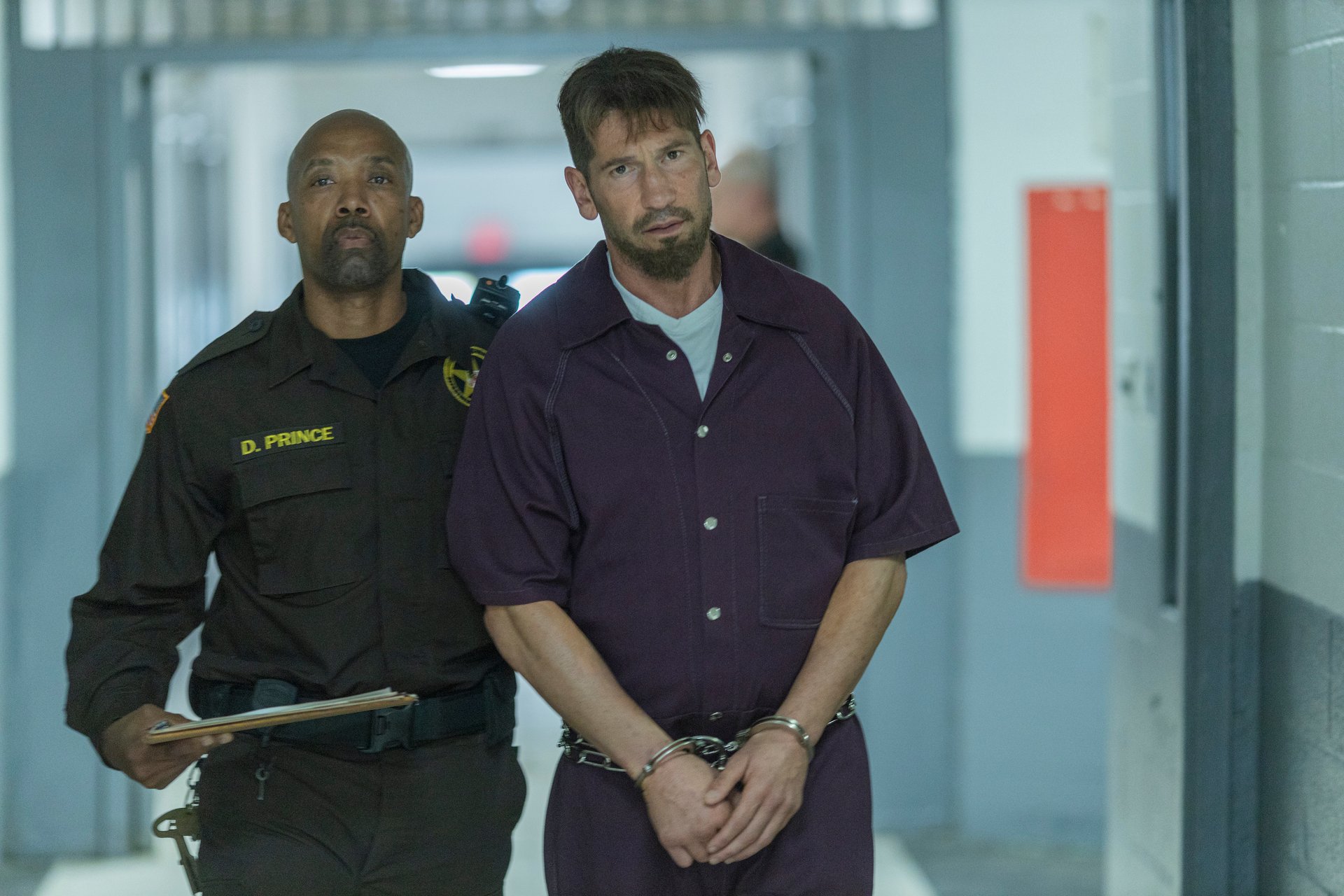‘We Own This City’: Jon Bernthal Didn’t Want to Depict Wayne Jenkins as a Monster
The Wire creator David Simon’s latest HBO series, We Own This City, follows a massive scandal in 2017 involving the Baltimore Police Department’s (BPD) Gun Trace Task Force (GTTF). Their ring-leader was Sgt. Wayne Jenkins (Jon Bernthal).
However, Bernthal didn’t want to depict Jenkins as a monster.

Wayne Jenkins began his career in the police department as a beat cop
In the second episode of We Own This City, which is titled “Part Two,” the audience learns a bit more about Jenkins’ background. Though he was taught how to properly police in the academy, Jenkins’ training officer Ed Barber told him to ignore all of that training. Instead, Jenkins was taught arrest without cause, especially in what was deemed “high crime areas,” since it would make the higher-ups happy, make statistics look better, and increase the opportunity for overtime pay.
Fueled by greed, Jenkins soon began to spiral out of control, eventually lining his bank account with large amounts of stolen money. Still, Bernthal felt it was important to humanize Jenkins.
Jon Bernthal didn’t want to depict Wayne Jenkins as a monster in ‘We Own This City’
Jenkins was obviously an arrogant criminal who was fueled by his ego. However, The Punisher actor didn’t want to depict the former police officer as monstrous.
“My first conversation with David Simon, he said, ‘We can’t just make him a monster,’ and everybody, from Donny Step, who he used to sell drugs with, to other officers from GTTF, to the gentleman he used to coach youth football with, I got to know everybody in his life, as many people as I could, and to a person, every single person said he was a committed father,” the actor told Salon. He added,
He put his kids above everything else. And for me, that’s something I can really relate to. I’m a father before I’m anything else. I needed a hook into this character, to something that I could relate to and kind of believe in, and I feel like there is this crux, this conflict that I believe exists in all of us. How could you be that committed your children, but yet engage in this kind of activity that is going to eventually, and ultimately separate you from them for most likely the rest of your life? That pressure and that conflict was something that was with Wayne at all times. And through all the stories and all the footage and everything I saw, I always saw that conflict present in him.
What happened to Wayne Jenkins?
TIME Magazine has reported that Jenkins and the GTTF stole at least $300,000. Their robberies included 43 pounds of marijuana, 800 grams of heroin, three kilos of cocaine, and hundreds of thousands of dollars worth of jewelry.
Jenkins pled guilty to charges of racketeering, robbery, and falsifying records. In the end, he received a 25-year-prison sentence that he is currently serving out. Bernthal was able to speak with him for the role in the series.
“The aftershocks of the GTTF scandal continue to be felt to this day,” a 2016 Department of Justice (DOJ) investigation states. “Officers not directly associated with the GTTF have been charged and convicted in connection with events that occurred more than a decade ago. It took decades for the cancer of corruption revealed in the GTTF scandal to spread as widely as it did and to sink its roots so deeply into BPD; it will take years for BPD to demonstrate, in both words and deeds, that it has zero-tolerance for corruption and misconduct.”


